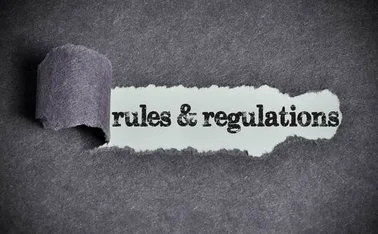
Insuring a good night out
Fights, drugs, alcohol abuse, trips and slips are all associated with nightclubs, but brokers and insurers need not be wary, writes Andrew Tjaardstra.
The smoking ban and the recession are having a large impact on the nation's 4,000 nightclubs (usefully defined as a place where there is a charge for entry, door staff, dance areas, alcohol and late opening). In addition, a change in fashion over the past five years has led to many of the country's superclubs shutting their doors for good and selling to property developers.
According to Rob Marsh, chief executive at Marsh & Co, which has a specialist wholesale facility for nightclubs, income at such venues is down between 20 and 25% in the last twelve months. He also notes that competition among clubs is heating up as a result of bars opening later, a move attributable to the relaxation of licensing laws since Labour came to power. Despite the advent of 24-hour drinking, however, few clubs have extended their opening hours significantly; three o'clock is still the closing time most widely adhered to.
Although the recession has hurt the sector's income, there is still a public need to let off steam, so a night out clubbing is still very much part of the UK's social fabric. Some nightclubs are diversifying in order to generate extra revenue, for instance by showing football matches, putting on live bands and even holding popcorn evenings.
The soft market has hit this class of cover as it has most others and many less-experienced players have entered the market over the last few years. Simon Carter, director at Camberford Law, says: "There is far more choice [to place risks] than four or five years ago and you can build a book fairly quickly. The market has forced public liability excesses down; £2,500 isn't rare any more and some are even £1,000. The current rating and excess levels are not sustainable."
Revealing the depth of the softness, Marsh says that the nightclub market has seen average premiums dip from the heady heights of £20,000 to £8,000 today. Although most brokers have the odd nightclub on their books, it is not necessarily an easy risk to place in a soft market and some large players, such as Aviva, are not actively seeking out such risks. Keith Sully, underwriting manager for leisure at Aviva, highlighted: "It is fair to say that nightclubs are not a core market for us; we will only write them on a connectional basis."
Broker expertise
Like most niche classes, there are some brokers that have especially good relationships with underwriters and have developed expertise in the field; among them are London-based Camberford Law (which has two scheme facilities through Novae and Zurich), Leicester-based Marsh & Co. and Wokingham-based BJP Insurance Brokers.
As the market turns, Rob Marsh is spying opportunities by growing the 30% of its nightclub book that is wholesaled. He comments: "With the market hardening, the wholesale market is important. Within its niche it is competitive but there are fewer new facilities." Leicester based Marsh & Co. has its own exclusive binder with Brit and has full underwriting authority. For wholesalers, it is preferable if a broker places a block of business to obtain better commission and rates; chains of nightclubs should be placed together ideally.
The most frequently taken policies are for public and employer's liability, as well as for content damage to cover what is frequently an expensive list of equipment in use by venues such as video, lighting and sound equipment. Health and safety is improving in the sector and the introduction of closed-circuit television has helped to reduce the number of fraudulent claims. In addition, plastic glasses assist in reducing the number of cut feet on the dance floor, while the presence of toilet attendants can decrease instances of drugs being used or dealt (CCTV is not allowed in toilets). Checking areas such as stairs for left bottles and spillages can further reduce the numbers of injuries incurred by staff and customers alike.
It is important for nightclub owners to document all good practices undertaken by their businesses in writing in case they find themselves defending a claim; they should also remember that they are responsible for land surrounding the club, even outside operating hours. Brokerbility member Marsh & Co., for example, offers free health and safety checks, while Nightclubinsurance.co.uk has the following advice on its website: "To give your business the maximum chance of defending any claim that may be made, you need to ensure you adopt working practices that will generate documentary evidence of good, responsible management when your insurers are defending a claim, and [this] will reduce the risk of genuine accidents occurring in the first place."
One of the biggest fears for nightclub owners is losing their licenses. This can occur for a number of reasons, including local authorities shutting venues on environmental health grounds as a result of excess noise. Aviva does not cover license loss for drugs offences, nor for exceeding opening hours - known in law as permitted hours - though it would pay out if the local authority no longer allowed licensed premises in the area.
Carter says that Camberford Law covers license loss for nightclubs that have been opened for at least a year and wants more help for club owners in this area. He says: "There are many provisos in the wording but we will assist the insured in trying to help them get their license back, provided there is a reasonable chance this could happen; it also depends on the insured having acted reasonably. There is a lack of availability of high loss-of-license limits, especially as [owners] are likely to lose their license for at least a year. If somebody could match the loss-of-license limit to the business interruption sum of the insured then this would really help clients."
Castle Grove Insurance's website even points out the dangers of sexual assault and states that "there is a need for coverage of liability regarding third-party claims that arise from such situations".
Supervisors
Brokers also need to be aware of the risks around door staff: many are self-employed or will work for a company separate from the club. Barry McGoun, chief executive at BJP Insurance Brokers, advises: "If the door staff are pay-as-you-earn employees of the nightclub, they will be covered under the nightclub's main policy. Where they are provided by an agency then the it will cover them under its policy."
Carter remarks that it is not quite this simple and the nightclub needs to have a contingency plan because sometimes they are acting on the specific instructions of the nightclub. Most policies exclude deliberate and belligerent acts, though Camberford Law can provide a separate policy to cover door staff that would include these factors. If there is any trouble with third-party supplied door staff, it is normally the agency that would be liable, although the club would need to be fully conversant with the agency's cover - though this does not completely absolve the nightclub of liability as some legal cases have shown. The owner should also form a relationship with the police to ensure that everyone is prepared in case the worst happens. Carter says: "There are some good community projects for nightclubs to share information with police about problem individuals."
The UK continues to hum to the late-night sound of nightclubs, so don't dismiss out of hand what could be a good, if not a little risky, business opportunity.
Only users who have a paid subscription or are part of a corporate subscription are able to print or copy content.
To access these options, along with all other subscription benefits, please contact info@insuranceage.co.uk or view our subscription options here: https://subscriptions.insuranceage.co.uk/subscribe
You are currently unable to print this content. Please contact info@insuranceage.co.uk to find out more.
You are currently unable to copy this content. Please contact info@insuranceage.co.uk to find out more.
Copyright Infopro Digital Limited. All rights reserved.
As outlined in our terms and conditions, https://www.infopro-digital.com/terms-and-conditions/subscriptions/ (point 2.4), printing is limited to a single copy.
If you would like to purchase additional rights please email info@insuranceage.co.uk
Copyright Infopro Digital Limited. All rights reserved.
You may share this content using our article tools. As outlined in our terms and conditions, https://www.infopro-digital.com/terms-and-conditions/subscriptions/ (clause 2.4), an Authorised User may only make one copy of the materials for their own personal use. You must also comply with the restrictions in clause 2.5.
If you would like to purchase additional rights please email info@insuranceage.co.uk







